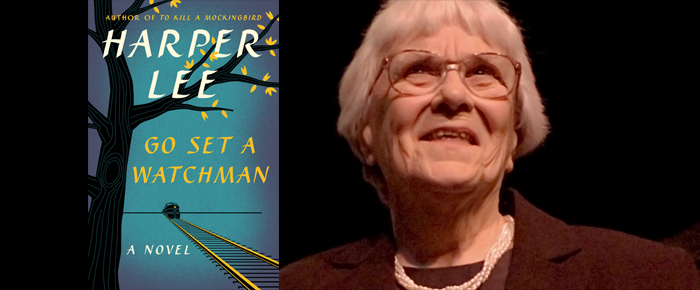
By Heidi Simmons
—–
“Go Set The Watchman”
by Harper Lee
Fiction
—–
For many young readers, Harper Lee’s To Kill A Mockingbird is their first foray into the magic of literature. It’s a tale that casts a spell and takes you away to another time and place.
“Mockingbird” was first published in July 1960. It’s the first-person story of Scout, a little girl, who tries to understand events in her Southern hometown. Events that uncover the evils of racism and reveal a hero — her father, Atticus — who is the voice of justice, decency and compassion, not only for Scout and her community, but also to millions of readers.
Whether prequel or sequel, Lee’s Go Set A Watchman (Harper, 288 pages) revisits Scout’s small town, her father and the issues of racism once again.
This time, told by an omniscient voice, Scout returns to Maycomb, Alabama, to visit Atticus who is now 72 and crippled with arthritis. Scout has lived in New York since finishing her liberal arts education and is 26. The time is the cusp of the civil rights movement.
However, things in Maycomb have not changed much and Scout reminisces about the folks and community. Atticus has built a new home; her childhood house was sold. Her Aunt Alexandra lives with Atticus. She is a proper Southern woman who constantly derides Scout for not complying with Southern etiquette.
Scout also reconnects with her first love Henry “Hank” Clinton, who is a lawyer and has been mentored by Atticus. Scout and Hank have an innocent, but romantic fling that scandalizes the town. Hank wants to marry Scout and she seriously considers his offer. Her Aunt does not approve.
Very soon, Scout begins to see the Southern lifestyle as unappealing and insipid. Southern ways no longer interest her. She scoffs at her former friends and classmates as they put their own lives aside for that of their husbands’.
When Scout discovers a pamphlet called “The Black Plague,” she is outraged that her father would read such trash. Not only is he reading the material, Atticus is a member of the “Maycomb County Citizens’ Council,” which spews hate, fear and segregation. Her boyfriend Hank is also a member.
Observing the Citizens’ meeting, Scout gets sick, and no longer wants anything to do with her hometown, Atticus or Hank. How could this be her home? Her people?
Scout confronts Atticus and the two argue. She calls him Hitler. Atticus is indeed a “segregationist!” He does not believe the black population should or is able to integrate into society. He defends Negros in court only so the NAACP won’t come into town to create a bigger problem.
In Scout’s eyes, Atticus is dethroned. Scout no longer considers her father a hero or “a god” and sees him only as an old, feeble, misguided man. Scout’s uncle, Dr. Finch, literally knocks sense into her and says her father only wants her to be her own person and that without the differences in thinking she would never be free from her upbringing. Broken and bleeding, Scout accepts her father for who he really is.
Wow! Atticus is not the man readers believed he was in “Mockingbird.” He is not strong or noble, nor is he wise and open-minded. In fact, he is a flat-out racist! The reasons he gives Scout are ugly and ignorant rationales. Uncle Finch’s defense for Atticus’s motives is nothing but excuses and manipulation. It’s shocking.
The publisher has said that “Watchman” is the manuscript author Lee first turned in to her editor who suggested she go back and rework the character and voice of Scout.
For me, I do not see the beginnings of “Mockingbird,” rather I see it as a sequel to the beloved story. It is as if Lee wanted to set the record straight about the community where she was raised and the truth about her “perfect” father. That under the façade of Southern etiquette and dignity there was misguided arrogance and false righteousness. And even Atticus got it wrong.
Will “Watchman” change how readers think about To Kill a Mockingbird? Perhaps. This book is not likely to be on reading lists like “Mockingbird,” but certainly scholars will study and analyze the text for years to come.
Sequel or prequel, Go Set The Watchman is a fascinating exposé of how Scout came to understand the people and community she called home.
In church, Scout listens as the pastor reads from the twenty-first chapter of Isaiah, verse six:
“For thus hath the Lord said unto me,
Go, set a watchman, let him declare what he seeth.”









































